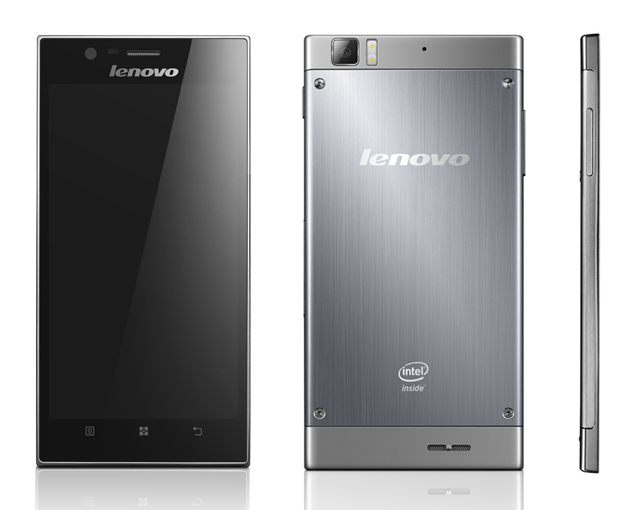Lenovo K900's Intel Processor Scores High in Benchmarks
The recently-revealed Intel dual-core processor powering the Lenovo K900 has performed commendably in a benchmark.
Powered by a 2GHz dual-core Intel Atom processor, the smartphone scored more than 27,000 points on the AnTuTu benchmark. Comparatively, the HTC Droid DNA settles for a score of 14,000.
The latter device is powered by the quad-core Snapdragon S4 Pro. The benchmark for the K900, however, also outperformed the Samsung Galaxy Note 2, which sports a 1.6GHz Exynos 4412 processor.
Intel's first CloverTrail+ smartphone, which remains undated in terms of a launch period, houses 2 GB of RAM, a 13-megapixel camera with a Sony Exmor BSI sensor, a front-facing 2-megapixel snapper and 16 GB of internal storage.
Elsewhere, during CES 2013, Lenovo announced a slew of products: the Windows 8 Yoga 11S laptop, the ThinkVision LT1423p Mobile Monitor Touch (our hands-on impressions can be found here), the Helix Hybrid ultrabook and the 27-inch IdeaCenter Horizon tablet/table PC.
Contact Us for News Tips, Corrections and Feedback
Get Tom's Hardware's best news and in-depth reviews, straight to your inbox.

Zak Islam is a freelance writer focusing on security, networking, and general computing. His work also appears at Digital Trends and Tom's Guide.
-
tipmen Not bad at all... Till I saw 16gbs of storage. I hope it has removable storage because 16gbs does not cut it.Reply -
teh_chem Since this benchmark weights in factors like the device's storage read/write speeds, these scores are moderately meaningless. My LG optimus G scores 19k.Reply
Moreover, show us how these CPU gains will further functionality. :) -
A Bad Day Hopefully the battery life is decent. I'm not saying that Intel has trouble with power efficiency (it's on par with ARM actually), but I've seen demos of OCing smartphones.Reply
Obviously their performance increased, at the cost of their battery life being meh. -
Soda-88 A Bad DaySuspicious link is suspicious...Not knowing goo.gl is shortened google link is commendable for a veteran on tech forumsReply -
someoneelse saintjimmySure it may be really fast, but does that matter if it has terrible battery life?TrueReply
I think the trick is to put a massive battery in it and hope people don't notice the wieght.
In theory if you get the power management done well on the chip the chip will only reach full clock ( and full power consumption ) when it needs to . With a high clock & good power managment if you just ran benchmarks continously your battery would be done in a couple of hours but on normal use the power management would keep it within the same limits as every other phone . Essentially it's peak burst rate that grabs headlines and power managment that keeps daily battery life in check. -
CyberAngel Wait 'til nxt yr...14nm Atom will beat every other ARM-like CPU using less power!Reply
I just wonder how well Broadwell will do?
Oh, well...more than a year to wait...
